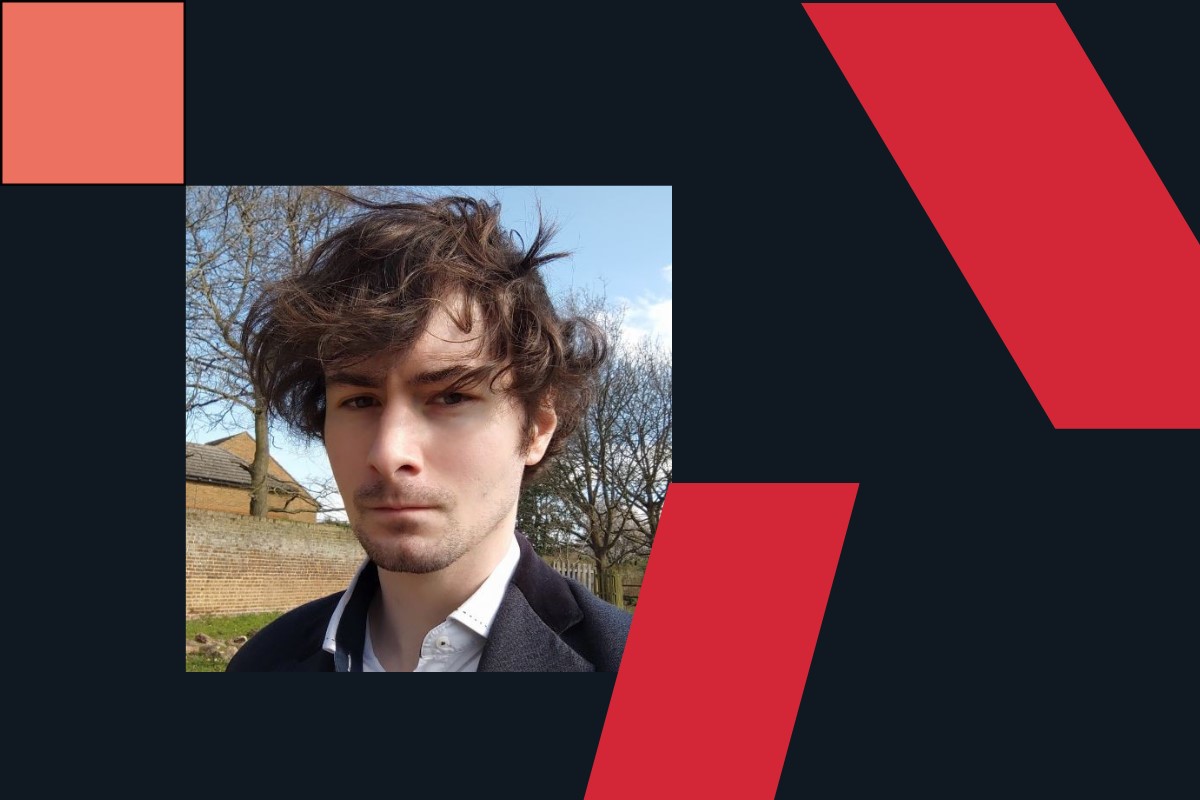Thomas Rowe studied MSc Management and now works as a Senior Operational Research Analyst for NPL – the UK’s National Metrology Institute. Here he explains how science, and business were a perfect match for a career in OR.
‘I began life at Kent with an undergraduate degree in biomedical science. During my third and final year, I was tasked with creating a biotech product for my final project. It had to be something really different and novel. The whole experience gave me a strong interest in business and science
I decided to apply for an MSc in Management. The course gave me a far-reaching overview of business topics and a diverse set of skills. I had already taken on voluntary business roles working for Kent Union, which had given me vital experience in how an organisation operates.
What I found really developed during MSc study was an ability to problem solve. My analytical, scientific mind seemed to naturally be able to tackle analysis and data-based tasks.
I took a Master’s in a year and a half, working a consultancy report via an internship which I landed at NPL – the UK’s National Metrology Institute.
As an organisation, NPL provides measurement capability in terms of quality of life. The company looks at a wide range of scientific and innovative solutions to improve life in this country. From new antibiotics to tackle resistance, to superfast 5G and effective cancer treatment.
My working life began as a Product Management Intern but I soon started to jump into other areas of the business when I noticed something not functioning properly or a process that was inadequate.
Since then, I’ve been offered a full-time role. I am currently acting as a technical lead to develop and implement the company’s knowledge management system.
I think to succeed you need to be revolutionary and that’s how I try to be at work. I believe all organisations should centre around the customer and be decentralised and non-bureaucratic – staff should be given trust and autonomy as long as the customer is still the main focus and I have confidence in my convictions.
While my role is about identifying problems, I don’t spend all my time challenging people. Within my role, it’s about collaboration, working in harmony to come up with solutions together.
What I do day-to-day centres on identifying problems through research, producing detailed reports and deriving solutions and new ways of going forward. It’s not always easy, but a big part of my role is encouraging people to step out of their comfort zones for the good of the business and make important changes that in effect, with our line of work, could change lives.
I see this work as the science of business. My Master’s really led me here, though. I use the lessons of MSc Management on a daily basis – modules in finance, transformation, program management and the theory of general business and consultancy practice are all very relevant to my working life.’

